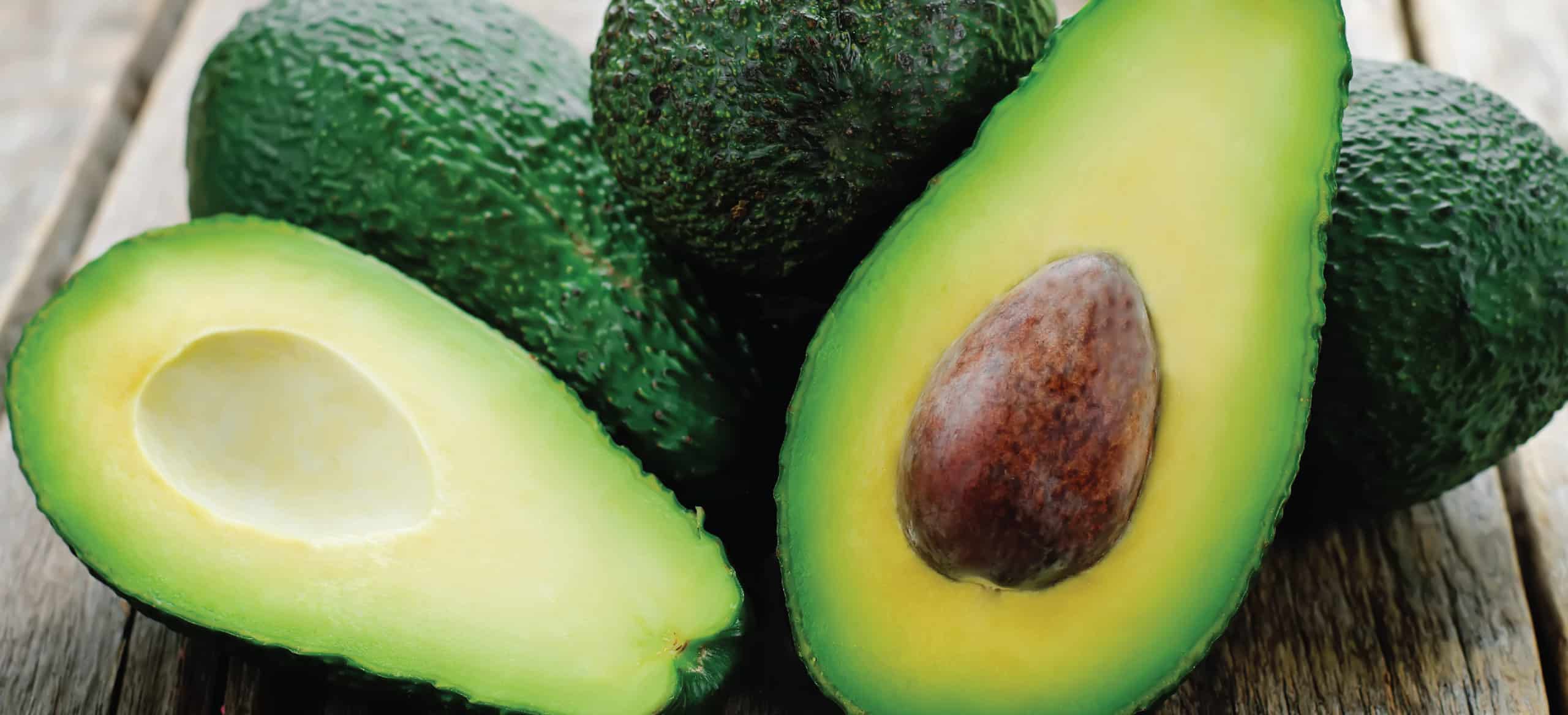
With their rich flavor, creamy consistency and buttery taste, benefit-rich avocados are a long-time favorite among foodies. But with a high amount of avocado calories packed into each serving, many health-conscious consumers have called the potential health benefits of this so-called superfood into question.
However, that doesn’t mean that you need to cut the guac out of your diet altogether. In fact, enjoying avocados in moderation alongside a variety of other fruits and vegetables can allow you to take advantage of the many health benefits that this superstar ingredient has to offer while still keeping your waistline in check.
So how many calories are in a whole avocado? And should the high fat content be a concern for fans of this flavorful fruit? Here’s what you need to know.
Nutrition Facts
The amount of calories in one avocado can vary based on the specific serving size. Avocados are also a great source of many other nutrients, including heart-healthy monounsaturated fats, vitamin K, folate and vitamin C.
Additionally, the majority of carbs in avocado are comprised of fiber, an indigestible compound that’s loaded with health benefits.
One medium-sized (7-ounce) avocado contains the following nutrients:
- 322 calories
- 17 grams carbohydrates
- 4 grams protein
- 29.5 grams fat
- 13.5 grams dietary fiber
- 42.2 micrograms vitamin K (53 percent DV)
- 163 micrograms folate (41 percent DV)
- 20.1 milligrams vitamin C (33 percent DV)
- 975 milligrams potassium (28 percent DV)
- 2.8 milligrams pantothenic acid (28 percent DV)
- 0.5 milligrams vitamin B6 (26 percent DV)
- 4.2 milligrams vitamin E (21 percent DV)
- 0.4 milligrams copper (19 percent DV)
- 3.5 milligrams niacin (17 percent DV)
- 0.3 milligrams riboflavin (15 percent DV)
- 58.3 milligrams magnesium (15 percent DV)
- 0.3 milligrams manganese (14 percent DV)
Keep in mind that the amount of whole avocado calories is relatively high, as this is a very large serving size.
Even the amount of calories in half an avocado is significantly less, with approximately 161 calories and nearly 15 grams of fat. Meanwhile, a standard serving contains about 1/5 of the amount of one avocado calories, which translates to about 64 calories and 6 grams of fat.
The specific type of avocado should also be taken into consideration. While Hass avocados are the most common, other varieties like the Florida avocado are much larger and will be higher in calories if the whole fruit is consumed.
Is Fat in Avocados Healthy?
The avocado nutrition profile is comprised mostly of monounsaturated fats, which are a type of heart-healthy fat found in other foods such as nuts and vegetable oils.
Monounsaturated fatty acids have been tied to a number of powerful health benefits, including protection against metabolic syndrome and heart disease. Monounsaturated fats may also reduce inflammation and enhance insulin sensitivity, which can improve the body’s ability to regulate blood sugar levels effectively.
READ RELATED: Cucamelon: How to Grow Instagram’s Most Popular Superfood
Not only that, but these healthy fats could also offer some serious mood-boosting benefits. In fact, a 2011 study in PLoS One reported that consuming a higher amount of monounsaturated fats could be linked to a lower risk of depression.
Other Benefits
Besides bringing a host of healthy fats to the table, avocados have been associated with a number of other potential health benefits. Here are a few of the top avocado benefits:
- Supports healthy vision: Avocados are loaded with carotenoids like lutein, which can preserve eye health and aid in the prevention of age-related macular degeneration, a common disorder that can lead to vision loss.
- Combats cancer growth: Although more research is needed in humans, in vitro studies suggest that the compounds found in avocados could help slow the growth and spread of cancer cells.
- Boosts weight loss: Rich in fiber and healthy fats, avocados can help promote satiety and keep you feeling full between meals. And despite the amount of calories in avocado, studies show that this high-fat fruit won’t compromise results when enjoyed as part of a weight loss diet.
- Reduces inflammation: Thanks to their content of inflammation-busting antioxidants, some research suggests that avocados could be beneficial against symptoms of osteoarthritis.
- Improves blood sugar control: In addition to reducing blood sugar levels, studies show that monounsaturated fatty acids could also help improve the body’s sensitivity to insulin, which is the hormone needed to transport sugar out of the bloodstream and into the cells.
- Promotes digestive health: Avocados are loaded with fiber, a beneficial plant compound that moves through the body undigested. Upping your intake of fiber can promote regularity and protect against digestive issues like hemorrhoids, constipation and acid reflux.
Diet Advice
Compared to other fruits and vegetables, avocados are relatively high in calories. There are also a high amount of calories in avocado toast, guacamole and other popular recipes that feature the avocado. For this reason, monitoring your serving sizes is crucial to preventing weight gain and maximizing the potential health benefits of this incredible ingredient.
Be sure to enjoy avocados in moderation alongside a variety of other fruits and vegetables. You can also try swapping avocados in for other healthy fats in your diet, such as olive oil, coconut oil, grass-fed butter, nuts and seeds.
Incorporating a bit of avocado into your favorite recipes can also help you reap the rewards of this flavorful fruit. Add a few slices to sandwiches, wraps or burgers to bump up the health benefits or mix them into smoothies, salads, salsas and spreads. Avocados are also great in scrambled eggs, pasta dishes, salad dressings and more.
Here are a few other ways to use this interesting ingredient:
Risks
Although avocados are brimming with health benefits, it’s important to keep in mind that they are also high in calories and fat. Without moderating your portion sizes or making other adjustments in your diet, eating more calories than you consume each day can contribute to weight gain over time — perhaps with the exception of the high-fat, low-carb ketogenic diet, when perhaps an avocado would represent a larger share of a meal than a regular eating plan.
Instead of eating the whole fruit in a single sitting, try scaling back a bit so that you’re only consuming around 1/2 the avocado calories or less at a time.
Alternatively, selecting a smaller variety can also make it easier to keep portion sizes under control. Hass avocados, for example, are typically smaller than Florida avocados and contain a lower amount of small avocado calories if the entire fruit is consumed.
Avocados are also high in fiber, with nearly 3 grams packed into each serving. While fiber can definitely be beneficial when consumed in moderation, increasing your intake of fiber too quickly can cause digestive issues like constipation, gas, bloating and stomach pain. Be sure to increase fiber consumption gradually and pair with plenty of water to prevent any adverse effects on health.
Final Thoughts
- Avocados are highly nutritious and contain a good amount of fiber, vitamin C, folate and healthy fats in each serving.
- They have also been linked to a number of health benefits and could potentially improve heart health, reduce blood sugar levels, support eye health, decrease inflammation and more.
- Compared to other fruits and vegetables, they are also relatively high in calories. How many calories are in an avocado, however, can depend on the specific serving size.
- If consumed in high amounts, avocados can contribute to weight gain, especially if you don’t make any other changes to your diet.
- Therefore, it’s best to moderate your portion sizes and pair with a variety of other healthy fats to maximize the potential benefits of this flavor-filled fruit.
Source: Dr. Axe | Nutrition






